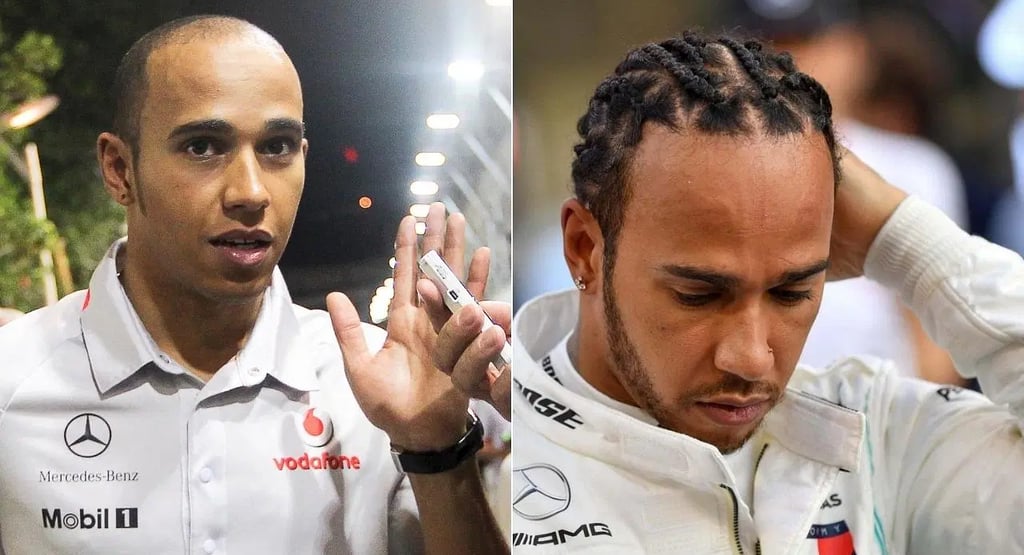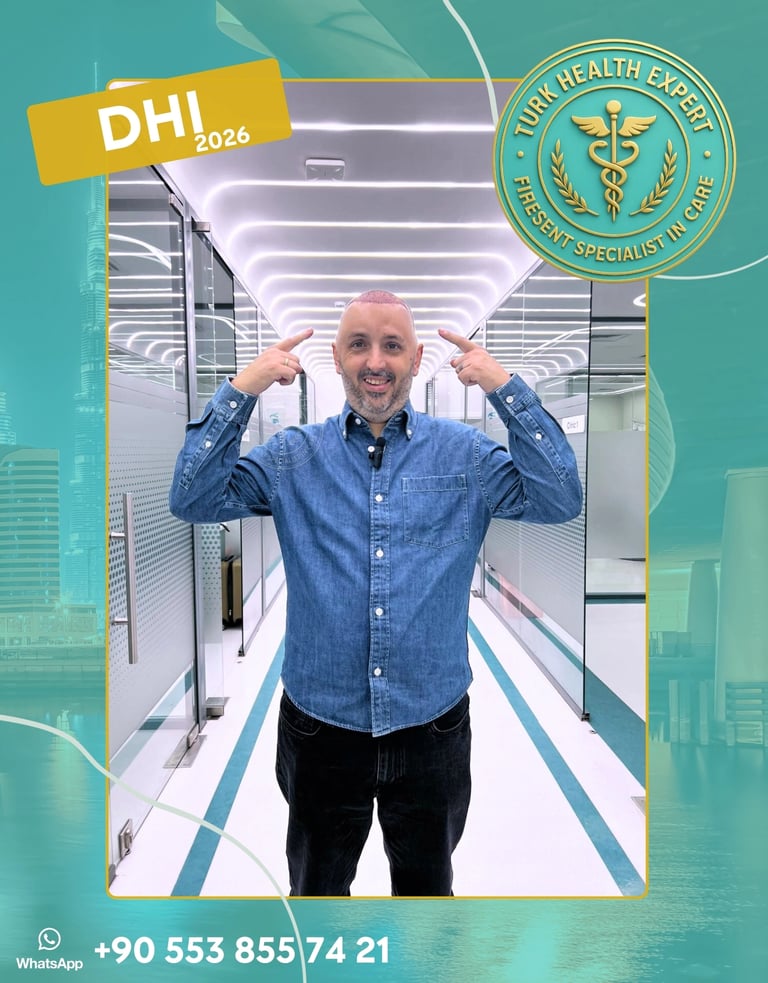
Did Lewis Hamilton Have a Hair Transplant? Formula 1 Hair Analysis & Turkey Expert Insight (2026)
Did Lewis Hamilton get a hair transplant? Explore expert medical analysis, before-after timeline, Formula 1 hair restoration insights, and how celebrity-level hair transplants are performed in Turkey.



Over the years, Formula 1 fans have closely followed every detail of Lewis Hamilton’s career — from championship titles to personal style evolution. One noticeable transformation that sparked global curiosity is his hairline.
Many people are asking:
Did Lewis Hamilton have a hair transplant?
While there has been no official confirmation from Lewis Hamilton himself, visible changes in hair density, frontal hairline definition, and temple reinforcement suggest a significant improvement compared to earlier Formula 1 seasons.
This type of transformation is commonly associated with modern hair transplant procedures — particularly FUE (Follicular Unit Extraction) and DHI (Direct Hair Implantation).



Lewis Hamilton Hair Timeline: What Actually Changed?
In earlier public appearances during his early Formula 1 career, signs of mild temple recession and frontal thinning were noticeable.
In later years, observers have seen:
Increased frontal density
Sharper and more defined hairline
Improved temple coverage
Consistent thickness even under bright lighting
These results are typically difficult to achieve with styling products alone. In medical practice, this level of structural hairline improvement usually requires graft implantation.

Could It Be a Hair Transplant?
When evaluating celebrity hair transformations, specialists look at:
Hairline symmetry changes
Density contrast between old and recent images
Temple reconstruction
Natural angle consistency
If a procedure was performed, the most likely techniques would be:
FUE (Follicular Unit Extraction)
A minimally invasive method where individual grafts are extracted and implanted without leaving a linear scar.
DHI (Direct Hair Implantation)
An advanced technique that allows precise implantation angle control and higher density in the frontal zone.
Both methods are widely used in Turkey for celebrity-level hair restoration.

How Many Grafts Would Be Required for a Similar Case?
For a patient presenting a recession pattern similar to what was visible in earlier years, the average graft requirement would be:
2,000–2,500 grafts for frontal hairline restoration
2,500–3,500 grafts if density reinforcement is needed
Final numbers always depend on donor capacity, hair thickness, and long-term hair loss planning.
What Technique Did Lewis Hamilton Most Likely Use? FUE Explained
Based on the natural results and minimal downtime required for an elite athlete, Follicular Unit Extraction (FUE) is the almost certain technique used.

Why Turkey is the first Destination for Celebrity Hair Transplants
While Hamilton's specific choice of clinic is private, Turkey has become one of the most recognized destinations worldwide for hair transplant procedures, attracting celebrities, athletes, and individuals seeking world-class results at a fraction of Western prices.
International patients — including public figures — choose Turkey for several reasons:
High surgical experience volume
Advanced FUE and DHI techniques
Natural hairline design expertise
Discreet medical privacy standards
Cost efficiency compared to UK or USA
Turkey performs tens of thousands of procedures annually, making it one of the most experienced global hubs for hair restoration.

Celebrity Hair Transplant Cost in Turkey
For patients seeking natural, high-density results similar to celebrity transformations, the average cost range in Turkey is:
$2,000 to $4,500
(for 2,500 to 5,500 grafts depending on technique and clinic level)
Most professional clinics offer all-inclusive packages covering consultation, surgery, medication, aftercare, and accommodation.
What Matters More Than Celebrity Speculation
Whether or not Lewis Hamilton had a hair transplant is ultimately secondary.
The real question for patients is:
Can similar results be achieved safely and naturally?
The answer depends on:
Proper donor evaluation
Correct graft calculation
Realistic density planning
Experienced surgical execution
Long-term hair loss stabilization
A professional hair analysis is essential before deciding on any procedure.

Frequently Asked Questions (FAQs)
Did Lewis Hamilton confirm having a hair transplant?
There has been no public confirmation. Observations are based solely on visible hair changes over time.
Can a hair transplant look natural like a celebrity result?
Yes. When designed properly with correct hairline proportions and density control, modern FUE and DHI techniques produce natural-looking results
How long does it take to see the final results?
The transplanted hair will shed within 2-4 weeks—this is completely normal. New growth typically begins around the 3-month mark. You will see significant progress at 6 months, with the final, mature result visible between 12-15 months post-procedure.
Will people be able to tell I had a transplant?
Not if it's performed well. The goal of a modern FUE procedure is to achieve completely natural results. Our surgeons design hairlines that suit your face and implant grafts at the correct angles and densities to mimic natural growth. Once fully healed, your hair will look entirely natural.
Is the procedure painful?
The procedure is performed under local anaesthesia, so you will not feel pain during the surgery. You may feel some slight discomfort during the administration of the anaesthesia and some normal soreness in the days following the procedure, which is easily managed with prescribed pain medication.
Why is Turkey so much cheaper than the UK/US?
Due to lower operating costs and favourable exchange rates, Turkish clinics can offer the same—and often superior—technology and expertise at a fraction of the price. The high volume of procedures performed also allows surgeons to become true experts in their field. You are paying less for more experience and better technology.









